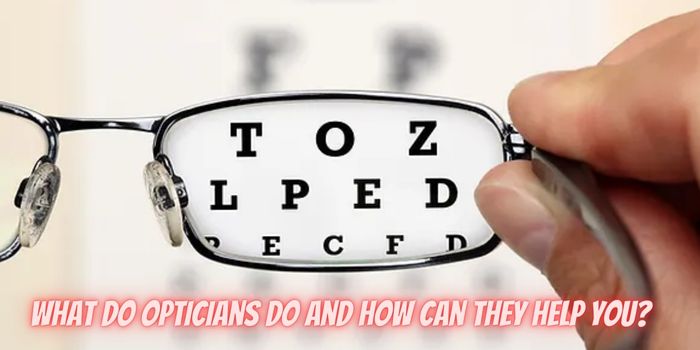Who do you turn to when you need new glasses or contact lenses? Your eye doctor, right? Well, not exactly. Your eye doctor may examine your eyes and write your prescription, but the optician will help you choose and fit your eyewear.
An optician is a technician trained to assist in designing, providing, and “fitting” corrective lenses for vision care patients that require prescriptions provided by their eye doctors. They are the experts in eyewear fashion, function, and comfort. Opticians in Manchester are not eye doctors, but they are essential to your eye care team. Now that you know who an optician is, let’s dive in to find out what they do and how they can help you.
The Duties and Responsibilities of an Optician
To fully understand what an optician does, you must first know an optician’s primary role. Their main role is to work directly with individuals who need contact lenses or eyeglasses. This means that everything they do revolves around fitting eyeglasses or contact lenses. They frequently work in health and personal care stores, optometrists, and physicians’ offices. Their duties and responsibilities include:
1. Filing Prescription
As mentioned earlier, the primary responsibility of an optician is to file in prescription glasses and contact lenses. They help you find the best medical match for eyeglasses or contact lenses. While this process may look like a simple grab-and-pay process, it’s much more involving. The factors an optician looks at when determining the right eyeglasses for you include:
The Size of the Frame
When determining the frame size of your eyeglasses, an optician will ensure that:
- They don’t rest on your cheeks
- The glasses don’t rub your eyebrows together
- The eyeglasses don’t extend above your eyebrows or beyond your temple
By sticking to the don’ts, an optician can ensure that your glasses aren’t too big
The Bridge’s Width
The bridge is the portion of your eyeglasses that lies on the nose and connects the two lenses. If the bridge is excessively wide, the eyeglasses may slide down and lay on your cheeks, causing discomfort. Bridge fitting is aided with nose pads, especially on steel frame eyeglasses. An optician can help you evaluate whether the nose pieces can be fitted to your eyeglasses. They will also adjust them for you to give you the best fit.
The Pupil’s Position
Your eyeglasses center should align with your pupils, especially for individuals with myopia. Using sophisticated tools, an optician will help ensure your eyeglasses have the correct position.
Finding the proper eyeglasses isn’t always simple, but working with an optician can help you figure out what works for you and what doesn’t.
2. Fashion and Comfort
Eyeglasses and contact lenses carry a style element for most users, and an optician can help you find prescriptions that best suit your style and comfort. Aside from filing prescriptions, opticians can also find contact lenses and eyeglasses that best match your taste and comfort. They know that each customer is different, which is why they take time to guide you through the process.
3. Offer Advice on Lens Options
An optician can offer you advice on lens options. Based on their advice, they can create orders and send them to an ophthalmic laboratory technician. The technician will then create the eyewear pieces that you will ultimately use. However, some opticians do handle this work themselves, especially if they work in a similar shop with an ophthalmic laboratory technician.
What are the Differences Between Eye Specialists?
There are three types of eye specialists an optician, optometrists, and ophthalmologists. So, what makes each of these eye specialists different?
An Optician: They are eye care professionals but not eye doctors. It’s also important to note that they can’t give eye exams but are trained to fit eyeglass frames and lenses to correct vision problems. They also can’t treat, diagnose, or write prescriptions.
Optometrists: They perform eye vision and exam tests, prescribe, and give corrective lenses. They also detect eye abnormalities and prescribe eye medication for eye diseases. Optometrists aren’t medical doctors.
Ophthalmologists: They are eye doctors and provide all the services an optometrist can. They can prescribe medication, treat eye diseases, and fit contact lenses and eyeglasses to correct vision issues. They can also perform eye surgery.
Understanding what an optician does helps make it easier to know what to do when you have an eye issue. Remember, your eye health is important; therefore, make sure you prevent eye problems by protecting your eyes. Also, ensure you get the right eyeglasses or contact lenses, as it is crucial to protecting your eyes.




